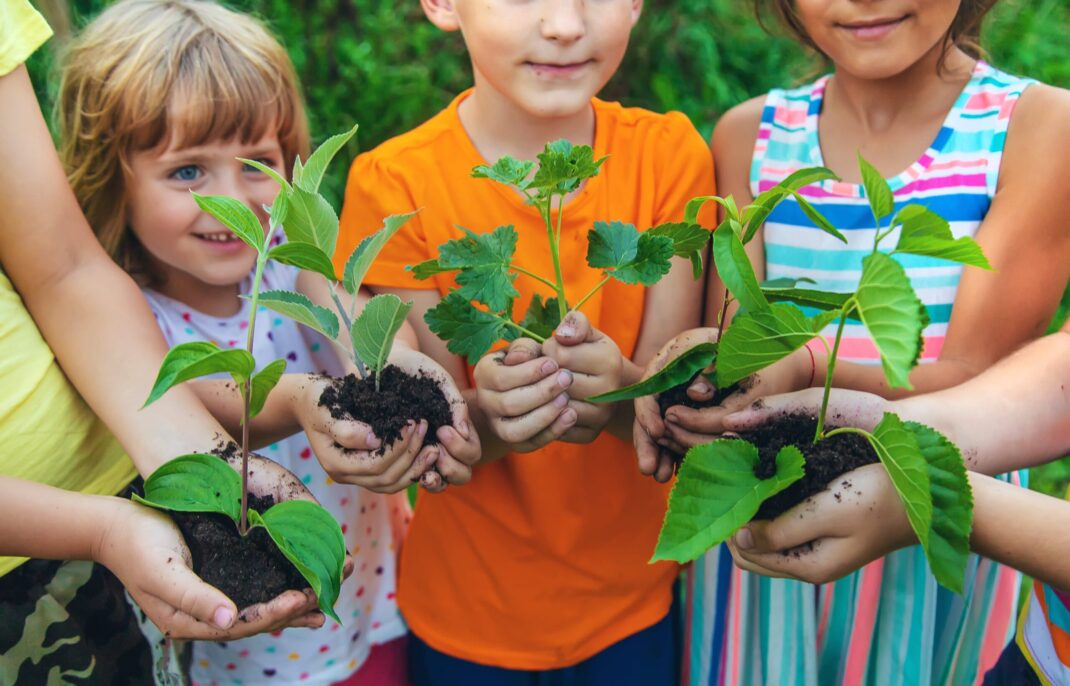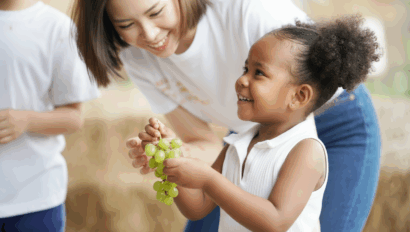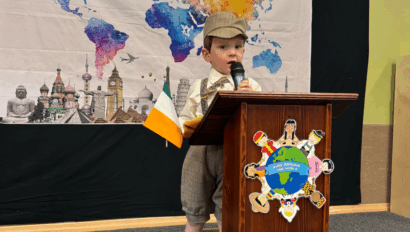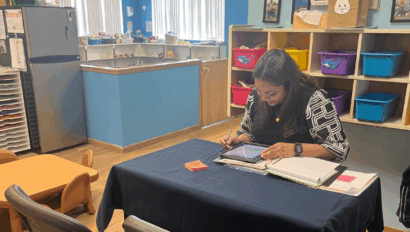How Outdoor Adventures Support the Whole Child’s Growth and Joyful Learning in Minnesota

TLDR: Our Montessori philosophy extends to thoughtfully prepared outdoor environments, which are essential extensions of the classroom for early learners. This approach supports the whole child’s development by fostering independence, coordination, and confidence through hands-on activities, ensuring children build a deep respect for nature and experience joyful discovery every day.
Outdoor Adventures Support Growth in Children
In Montessori education, we know that learning doesn’t only happen indoors — it happens everywhere a child explores with curiosity, wonder, and purpose. Outdoor environments are a natural and powerful extension of the Montessori classroom. They offer the freedom to move, the space to explore, and the inspiration to connect with the world in meaningful ways.
At Minnesota Montessori, our outdoor environments are thoughtfully prepared with the same intention as our indoor spaces. They are places where children can grow as independent learners, engage in hands-on activities, and experience the joy of discovery — all while developing essential practical life skills, strengthening their senses, and building deep respect for the natural world.
Nature as a Prepared Environment
In Montessori, the prepared environment is central to the learning experience — and that includes the outdoors. Our outdoor spaces are carefully designed to invite exploration and purposeful activity. With child-sized tools, garden areas, natural materials, and plenty of open space, children are free to engage with their environment in ways that support their natural development.
Unlike traditional playgrounds, Montessori outdoor spaces are open-ended and calm. Children might water the garden, rake leaves, collect sticks, or observe insects in the grass. They may use wheelbarrows, brooms, watering cans, or sand tools — all sized for little hands. These activities are not just play — they are meaningful work that fosters independence, concentration, and coordination.
Supporting the Whole Child Through Outdoor Experiences
Outdoor learning nurtures every aspect of holistic development, which is at the heart of Montessori education.
According to the National Association for the Education of Young Children (NAEYC), time outside supports important skills like focus, persistence, and self-regulation — qualities that Montessori children build every day as they follow their interests with purpose and joy.
- Physical development is supported through movement-rich activities that refine both gross and fine motor skills. Balancing on logs, digging in the soil, lifting a watering can, or using tweezers to collect acorns all contribute to strength, coordination, and control.
- Cognitive growth blossoms through child-led discovery. Nature-based activities like counting stones, sorting leaves by size or color, and naming different plants or insects build foundational math and language skills while keeping the child actively engaged.
- Sensorial development flourishes outdoors. Nature offers endless textures, sounds, smells, and sights. Children naturally explore these with their whole bodies — touching bark, listening to birds, watching shadows shift, or scooping smooth pebbles into baskets.
The Natural Start Alliance also highlights how these outdoor experiences help children develop resilience, independence, and a strong connection to the natural world — all essential parts of Montessori education.
Montessori-trained educators observe and guide these moments with intention, offering just the right support to help children grow confidently at their own pace.
Practical Life and Peace Education in Nature
Practical life skills are a cornerstone of Montessori learning, and outdoor environments offer countless opportunities for children to engage in meaningful work. From sweeping porches to planting seeds, outdoor chores help children feel capable and connected to their community. These tasks also reinforce respect for the environment — an essential part of Montessori philosophy.
Nature also supports peace education and emotional growth. Activities like nature walks, mindful listening, or simply lying in the grass help children regulate their emotions, develop patience, and feel calm. Being outdoors allows them to return to their center — naturally and gently.
Open-Ended Toys and Tools that Spark Learning
In line with Montessori principles, outdoor materials should be simple, real, and open-ended. Some of the most valuable items include:
- Child-sized gardening tools (rakes, shovels, watering cans)
- Balance boards or logs for developing core strength and coordination
- Baskets or trays for collecting and sorting natural items
- Funnels, scoops, and containers for sensory play with water or sand
- Wheelbarrows and buckets to promote purposeful movement and build strength
- Chalk, paintbrushes with water, or nature journals for expressive creativity
These materials don’t just entertain — they empower children to direct their own learning, explore their interests, and develop practical life skills through play.
Joyful Learning Rooted in Freedom and Discovery
Freedom of movement is essential in the Montessori philosophy — and in outdoor spaces, this freedom flourishes. Children have space to follow their interests, test their abilities, and engage in spontaneous, joyful learning that is truly their own.
Outdoor environments also reflect Dr. Maria Montessori’s belief that “there must be provision for the child to have contact with nature.” Through daily time outside, children build a personal relationship with the natural world. They learn not only about nature, but how to care for it, respect it, and feel at home within it.
A Montessori Approach to Lifelong Learning
At Minnesota Montessori, our outdoor environments are more than a break from the classroom — they are a meaningful extension of our Montessori curriculum. They encourage movement, curiosity, problem-solving, and real-world connection.
We believe these daily experiences help children grow into confident, capable learners who are not only school-ready — but life-ready.
See How Outdoor Learning Comes to Life
Curious about how outdoor exploration supports independence, confidence, and joyful learning in a Montessori setting? We’d love to show you.
Book a tour at Minnesota Montessori in Minnesota and explore our thoughtfully prepared outdoor environments — where nature becomes a classroom, and every moment is a chance to grow.


